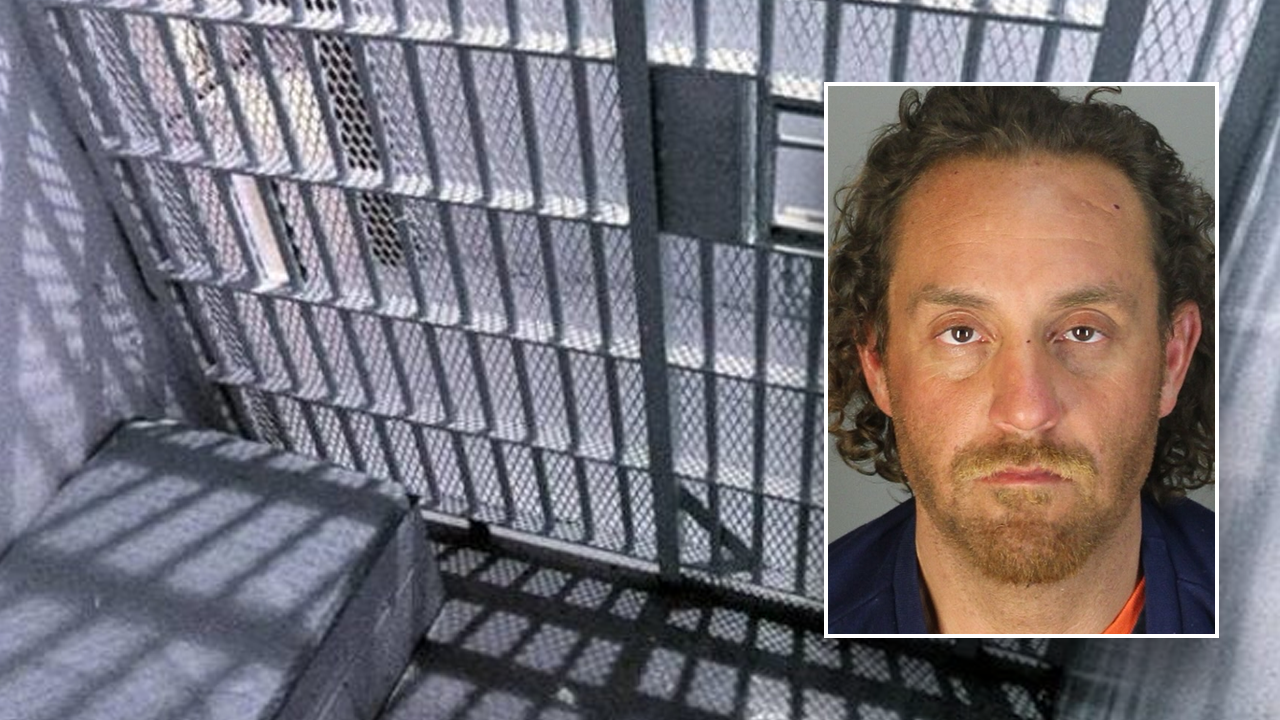West
California man arrested for brutal murder after being granted mental health diversion, having charges dropped

NEWYou can now listen to Fox News articles!
A California man was arrested for allegedly committing a brutal murder just three days after he was granted immunity from prosecution for separate misdemeanor charges under California’s mental health diversion laws, prompting serious concerns about a system intended to protect public safety.
On July 11, Napa County prosecutors filed murder charges against Ramiro Ochoa Mendoza, 36, for the killing of Noel Batres, 47, whose body was found under a bridge on July 3. Mendoza allegedly killed Batres on June 27.
Mendoza, who had a history of criminal offenses and poor compliance on probation, was deemed mentally incompetent to stand trial earlier this year on misdemeanor charges including violating a restraining order and resisting arrest.
Despite numerous attempts by defense counsel to dismiss the cases outright, the Court, following legislative guidelines, ordered Mendoza into a mental health diversion program with supervised release for the two remaining misdemeanors.
ILLEGAL IMMIGRANT KILLER OF LAKEN RILEY WINS UNEXPECTED COURT VICTORY FOR MENTAL EVALUATION
A Napa man was charged with murder just days after he was released, and misdemeanor charges were dismissed due to California’s mental health laws. (Napa Police Department)
Mendoza, however, failed to appear for his scheduled mental health diversion review and was deemed non-compliant with the terms of the program.
“Mendoza promptly failed to appear in court for his mental health diversion review and was found to be out of compliance with the diversion program,” the Napa County District Attorney’s Office said.
Even with repeated violations and non-compliance, the court was legally required to dismiss charges due to Mendoza’s mental health status and the misdemeanor-only nature of his offenses.
CALIFORNIA MAN ACCUSED IN RECENT MURDER WAS LET OUT OF JAIL ON ‘MENTAL HEALTH DIVERSION’ SIX MONTHS AGO
“Because the law prohibits prosecution from continuing in cases where a defendant is deemed incompetent on only misdemeanor charges, the court had no choice but to dismiss both remaining cases and did so on July 8, 2025,” the DA’s office said.
The dismissal followed recent legislative reforms, specifically Senate Bill 317, that bar courts from restoring competency in misdemeanor-only cases, even if the defendant shows signs of escalating behavior.
Mendoza was re-arrested on July 11 and now faces murder charges with enhancements related to his prior offenses and the alleged brutality of Batres’ killing. The case is already fueling debate over the limits of mental health protections and their implications for public safety.
PROSECUTORS PLAN TO DROP CHARGES AGAINST SEX OFFENDER IN ELEMENTARY SCHOOL ALLEGED KIDNAPPING ATTEMPT
A Napa man was charged with murder days after being granted mental health immunity. (Credit: iStock)
“This case highlights the real-world impact of the recent legal reforms, where courts are required to prioritize mental health treatment over traditional prosecution, even when defendants exhibit an unwillingness or inability to comply with court-ordered programs,” Napa County Deputy District Attorney Katie Susemihl said in a statement.
California Senate Minority Leader Brian Jones criticized California’s “mental health diversion” law, arguing it allowed a violent repeat offender to be released without proper oversight, leading to the murder of an innocent man.
“This is yet another devastating example of California’s soft-on-crime policies creating more victims instead of preventing crime. Under the so-called ‘mental health diversion’ law, a violent repeat offender was released and just days later, he brutally murdered an innocent man,” Jones shared in a statement with Fox News Digital.
“The system failed at every turn. This law prioritizes the rights of offenders over public safety, even when individuals show no willingness to comply with court-ordered treatment. If someone is truly mentally unwell, they should receive help within the justice system — not be dumped back onto our streets without accountability or oversight,” he continued.
Jones called the current system broken and urged legal reform to prevent further tragedies and better protect the public.
“Californians deserve better than laws that protect dangerous individuals while endangering the public. It’s time to fix this broken system before more innocent lives are lost,” Jones said.
A GoFundMe campaign was launched to assist with returning Batres’ remains to his home country of Guatemala. According to the page, Batres was a resident of Napa for 26 years.
“Noel was not perfect by any means. However, he was a wonderful, caring, gentle soul,” the page read. “We ask that you please help us send Noel back home to be seen by his immediate family one last time before they lay him to rest.”
Mendoza was being held without bail at the Napa County Department of Corrections.
Fox News Digital reached out to Governor Gavin Newsom’s office for comment, but did not immediately receive a response.
Stepheny Price is a writer for Fox News Digital and Fox Business. She covers topics including missing persons, homicides, national crime cases, illegal immigration, and more. Story tips and ideas can be sent to stepheny.price@fox.com
Read the full article from Here

West
Woman suspected to have been killed in Colorado’s first fatal mountain lion attack in over two decades

NEWYou can now listen to Fox News articles!
A woman’s death in Colorado is suspected to have been caused by a mountain lion attack, according to Colorado Parks and Wildlife, which notes that the last fatal mountain lion attack in the state occurred in 1999.
“Around 12:15 this afternoon, hikers on the Crosier Mountain trail in Larimer County observed a mountain lion near a person lying on the ground from about 100 yards away,” a Colorado Parks and Wildlife spokesperson explained during a news conference on Thursday.
The hikers then scared the mountain lion off by tossing rocks at it, she said.
MOUNTAIN LION ATTACKS 4-YEAR-OLD WALKING WITH FAMILY AT WASHINGTON’S OLYMPIC NATIONAL PARK
Gaia, a 3.5-year-old female mountain lion (Puma concolor), is pictured at the Las Pumas Rescue and Sanctuary Center in Guanacaste, Costa Rica on April 17, 2025. ( EZEQUIEL BECERRA/AFP via Getty Images)
“One of the witnesses is a physician,” but “did not find a pulse,” she noted, adding that the incident is being investigated as a suspected deadly mountain lion attack.
A search effort yielded the discovery of two mountain lions which were both killed.
ROGAN BLAMES LIBERAL POLICIES FOR ALLOWING ‘MONSTERS’ TO RUN AMOK, EAT HOUSE PETS
A Colorado Parks and Wildlife press release notes, “CPW officers, Larimer County Sheriff deputies, Estes Park police and Glen Haven Area Volunteer firefighters responded to the area to launch an extensive search for any mountain lions. A CPW biologist who was conducting aerial deer surveys in the county was able to assist in spotting and personnel transportation. Houndsmen assisted by using dogs to track the scent of lions.”
MOUNTAIN LION ATTACKS 5-YEAR-OLD PICNICKING WITH FAMILY AT SOUTHERN CALIFORNIA PARK
Mountain lions in the mountains of Montana. ( Dennis Fast / VWPics/Universal Images Group via Getty Images)
“Officers located one lion at the scene, shot the animal and it ran from the area. Officers tracked the mountain lion and it was euthanized. A short time later, a second mountain lion was found nearby and euthanized. It is unknown if one or multiple animals were involved in the suspected attack. According to CPW policies, wildlife involved in attacks on humans must be euthanized to ensure public safety,” the release explains.
Read the full article from Here
San Francisco, CA
Year 1 of the Lurie era is done. Here’s how he kept — or whiffed — his biggest promises

On Jan. 8 of last year, San Francisco tried on its new mayor like a pair of Levi’s 501 jeans.
So far, it has liked the fit.
For 365 days, Mayor Daniel Lurie has taken swings at solving the city’s ills: scrambling to scrap the fentanyl scourge, working to house the homeless, and shaking his proverbial pompoms with enough vigor to cheerlead downtown back to life.
So is San Francisco all fixed now?
The eye test tells one story. The data tell another. But politics is more than paper gains and policy battles. It’s also a popularity contest — and Lurie has categorically been winning his, riding high on a stratospheric 71% approval rating.
Lurie’s rainbow-filled Instagram posts have gone a long way toward soothing locals’ doom-loop fears, but the political fortress he’s built over the past year could easily crumble.
After all, his predecessors as mayor, London Breed and the late Ed Lee, each enjoyed positive approval ratings (opens in new tab) in their first year in office. But the honeymoons lasted only about that long before voters gradually soured on their performance. Should San Franciscans’ adulation for Lurie similarly ebb, his policies might meet more resistance.
Still, if there’s one pattern with Lurie’s efforts in his freshman year, it’s this: While he hasn’t achieved all of his lofty goals, he has fundamentally changed how the city approaches many of its problems, potentially setting up success for future years.
As we enter Lurie: Year 2, here’s a rundown of where the mayor has delivered on his campaign promises, where he’s been stymied, and why voters may continue to give him the benefit of the doubt. At least, for now.
Misery on the streets
Headwinds: While Candidate Lurie promised to declare a fentanyl “state of emergency” on his first day in office, he quickly found it wasn’t legal to do so. (Per the city’s administrative codes, an emergency needs to be sudden and unforeseen; the fentanyl epidemic was neither.) Instead, the mayor asked the Board of Supervisors to grant him similar powers that an emergency declaration would have afforded him, and they agreed. But as Lurie touted his efforts to curb drug use on Sixth Street, all those drug dealers just moseyed on down to the Mission. The mayor’s first year in office ended with 588 drug overdose deaths, according to the office of the medical examiner (opens in new tab). That’s an improvement from the 635 in 2024, but it’s still an appalling body count — and December 2025 isn’t even part of the official tally yet.
Silver linings: The mayor employed his newfound powers to speed up approvals of initiatives, notching well-publicized wins, like fast-tracking the 822 Geary stabilization center, where police can place mentally ill folks instead of arresting them. It’s got a 25% better success rate at connecting patients to treatment than previous facilities, according to city data, part of a noted change for the better in the Tenderloin. And while some of the police’s high-profile drug busts didn’t net, you know, actual drug dealers, law-and-order-hungry San Franciscans were just happy to see batons fly.
Shelter-bed shuffle

Headwinds: On the campaign trail, Lurie talked a big game about his nonprofit experience, which he claimed had allowed him to cinch deals to create shelter that seasoned politicians had been too slow to enact. He even promised 1,500 treatment and recovery beds built for homeless folks in just six months. By midyear, he had backed off that promise. The real number of beds Lurie created in 2025 is about 500, and that’s after 12 months — twice the amount of time he gave himself.
Silver linings: Housed San Franciscans gauge success on homelessness with their eyeballs, not bureaucrats’ spreadsheets. By that measure, Lurie is succeeding. As of December, the city counted (opens in new tab) just 162 tents and similar structures, almost half as many as the previous year. (And as a stark counter to what some would call an achievement, for people on the streets, that can mean danger — without a thin layer of nylon to hide in, homeless women say they are experiencing more sexual assaults.) And drug markets haven’t vanished; they just moved to later hours. But are folks really getting help? Rudy Bakta, a man living on San Francisco’s streets, would tell you no, as he’s stuck in systemic limbo seeking a home. He’s just one of thousands.
Reviving the economy

Headwinds: Lurie asked for (opens in new tab) “18 to 24 months” to see downtown booming again, so we shouldn’t ding him for Market Street’s continued slow recovery. Foot traffic downtown has generally risen, reaching 80% of pre-pandemic levels by midyear, but slumped to roughly 70% as of November. While it doesn’t sound like much, that’s a reversal of the rising trend the city controller had projected. Office attendance is also slipping. It had risen past 45% of pre-pandemic occupancy in January 2025 but by the fall had slid below 40%.
Other economic indicators are wobbly too. Hotel occupancy “lost steam” in November, the controller wrote, nearing pre-pandemic levels in the summer but dipping below 2019 levels in the fall. The poster child for downtown’s troubles is undoubtedly the San Francisco Centre, the cavernous, and soon tenantless, shell of its former self. And while public employee unions are undoubtedly happy that promised layoffs were avoided, Lurie’s light hand in his first-ever budget pushed some even harder decisions to 2026’s budget season.
Silver linings: There’s a brighter story to tell outside the Financial District: Neighborhoods are where the action is nowadays. Just ask anyone dining at one of Stonestown Galleria’s 27 restaurants. This is where Lurie’s Instagram account (opens in new tab) truly has generated its own reality, crafting an image of a retail and restaurant renaissance. While that neighborhood vibrancy may lead some to shrug their shoulders concerning downtown’s continuing malaise, it’s worth noting that San Francisco’s coffers depend on taxes generated by the businesses nestled in those skyscrapers. There’s a reason we had a nearly $800 million budget deficit last year.
Fully staffing the SFPD

Headwinds: At first glance, Lurie appears on track to meet his campaign promise to staff up the city’s police force. “I’ve talked with current command staff and former command staff. We can recruit 425 officers in my first three years. We will get that done,” he said at a 2024 League of Women Voters forum. True to his word, the SFPD hired and rehired roughly 144 officers last year. There’s just one problem: The department recalculated the number of officers it needs in order to be fully staffed, raising the number to 691. And the police academy, which already struggled with graduating officers, might be hampered in the aftermath of a cadet’s death, after which top brass reassigned the academy’s leadership.
Silver linings: Crime is trending down, and that’s what voters care about, full stop. The reduction is part of a national trend (opens in new tab), yes, but San Francisco’s rates are experiencing an exceptional drop. Really, Lurie really should be sending Breed a thank-you card. Her March 2024 ballot measure Proposition E (opens in new tab) gave the SFPD carte blanche to unleash a bevy of technological tools to enable arrests, including drones and license plate readers, which have seen noted success. “Soon as you slide past that motherf—er with stolen plates, they’re gonna issue a warning to every SFPD station in that area, if not the entire city … and they start dispatching to that area,” rapper Dreamlife Rizzy said in a recent podcast, as reported by the New York Post (opens in new tab). That is music to any crime-fighting mayor’s ears.
Denver, CO
Denver is revamping its residential health regulations for first time in a decade

For the first time in a decade, Denver plans to revamp its residential health regulations.
City officials have been meeting with housing advocates and stakeholders for the past year, gathering input about how they might better protect tenants and maintain housing habitability standards amid a housing crisis and increasing corporate consolidation in the rental market.
In a Dec. 19 memo obtained by The Denver Post, Mayor Mike Johnston outlined a series of proposals that would increase transparency for residents, help tenant organizations better negotiate with management and ensure that problematic landlords address violations and fines before their rental licenses are approved.
Nicol Caldwell, public health manager with the Denver Department of Public Health and Environment, said the agency last updated its regulations 10 years ago — and that was only a minor revision.
“What we’re looking at now is basically a complete overhaul of the ordinance and rules and regulations,” she said in an interview. “It’s gonna be a pretty big effort.”
These changes will come in three different buckets. Internal policies and procedures — such as what inspectors wear and how they fill out forms — can be changed unilaterally by public health leadership. Rules and regulations — such as the minimum temperature a unit must maintain — must be approved by the DDPHE board. Larger changes to Denver’s city code must go before the City Council.
This process began in October 2024 as the city was working on its annual budget. Housing advocates were beating the drum over tenant protections, lamenting a lack of enforcement from city regulators as residents lived in buildings without heat and hot water, or their units were infested with cockroaches and bed bugs.
In response to the feedback, the city agreed to add a public health investigator position as well as an analyst to create a public dashboard for residential health complaints and citations. Johnston also agreed to hold a series of stakeholder meetings with the Denver Metro Tenants Union and other housing organizations to discuss more avenues to protect residents.
“The reality is that there are bad actors out there who are not putting in the work that’s necessary to maintain their properties on a regular basis,” Caldwell told The Post in January 2025.
The mayor’s memo outlined a series of “focus areas” that the public health team will consider during its overhaul, including:
- Requiring landlords to provide tenants with more information about violations and ongoing or completed enforcement actions
- Setting a maximum indoor temperature requirement to address overheating concerns
- Mandating that landlords meet and confer with tenants upon request to discuss property conditions or needed repairs
- Improving communication during the city’s proactive inspections
- Ensuring landlords pay outstanding fines and correct violations before they can renew their residential rental licenses
Some of the changes have already gone live. Members of the public can now find a comprehensive dashboard on the city’s website that tracks residential health complaints, violations and citations for any address dating back to 2022. Renters can now look up a prospective apartment building before they sign a lease, ensuring they’re moving into a space without years of documented problems.
The department previously increased the amount it can fine violators and started applying liens for unpaid fines.
“The ultimate hope is to make sure everyone in Denver, regardless of what type of dwelling they live in, has equal access to a healthy and safe environment,” Caldwell said.
Eida Altman, director of the Denver Metro Tenants Union, called Johnston’s letter “encouraging.”
“It indicated that the mayor’s office hears and understands many of the key issues we have been advocating around, and it signals that the conversation we held over the past year is the beginning, not the end,” she said.
Serena Gonzales-Gutierrez, a Denver city councilwoman, said the discussions are “just the tip of the iceberg.” There’s still a lot more work to be done, she said.
“This is a good example of how our government and community can come together to work toward solutions,” she said in an interview.
Caldwell admitted that recent cases of egregious behavior by landlords shone a light on the need for updated regulations.
The department issued heavy fines and ultimately shuttered a neglected building in Denver’s uptown neighborhood last year that was owned by CBZ Management. The building lacked heat, hot water and working fire alarms.
An investigation by The Post in May found the city has handed out residential rental licenses to building owners with years of documented violations, who continue to neglect their tenants immediately after receiving the all-clear.
The city hopes the updated regulations will be done by the end of 2027 — though Caldwell acknowledged that to be a lofty goal. Public health officials still need to sit down with landlords and apartment associations, as well as other city agencies. The job, she said, is to weigh the pros and cons and find a balance.
“Our job is to ensure everyone has a safe and healthy environment,” Caldwell said. “If that means changing regulations that come with a cost, that would be something we have to do.”
Get more Colorado news by signing up for our daily Your Morning Dozen email newsletter.
-

 Detroit, MI5 days ago
Detroit, MI5 days ago2 hospitalized after shooting on Lodge Freeway in Detroit
-

 Dallas, TX3 days ago
Dallas, TX3 days agoDefensive coordinator candidates who could improve Cowboys’ brutal secondary in 2026
-

 Technology2 days ago
Technology2 days agoPower bank feature creep is out of control
-

 Health4 days ago
Health4 days agoViral New Year reset routine is helping people adopt healthier habits
-

 Nebraska1 day ago
Nebraska1 day agoOregon State LB transfer Dexter Foster commits to Nebraska
-

 Politics4 days ago
Politics4 days agoDan Bongino officially leaves FBI deputy director role after less than a year, returns to ‘civilian life’
-

 Nebraska2 days ago
Nebraska2 days agoNebraska-based pizza chain Godfather’s Pizza is set to open a new location in Queen Creek
-

 Entertainment24 hours ago
Entertainment24 hours agoSpotify digs in on podcasts with new Hollywood studios




















